Vinegar All Purpose Cleaner Recipe: Unlock the secret to a sparkling clean home with a natural, budget-friendly solution! Are you tired of harsh chemicals and sky-high prices for your cleaning supplies? I know I was! That’s why I dove headfirst into the world of DIY cleaning, and let me tell you, it’s been a game-changer. For centuries, vinegar has been a staple in households, not just for cooking, but also for its incredible cleaning power. Our grandmothers knew the magic of this simple ingredient, and now it’s time for us to rediscover it!
This isn’t just about saving money (though that’s a definite perk!). It’s about creating a healthier living environment for you and your family. Many commercial cleaners are packed with toxins that can irritate skin, trigger allergies, and even harm the environment. With my easy-to-follow vinegar all purpose cleaner recipe, you can ditch those worries and embrace a natural, effective alternative. I’ll show you how to whip up a powerful cleaner that tackles grime, grease, and everyday messes, leaving your home fresh and sparkling without any harmful chemicals. Get ready to transform your cleaning routine and experience the joy of a truly clean home, naturally!
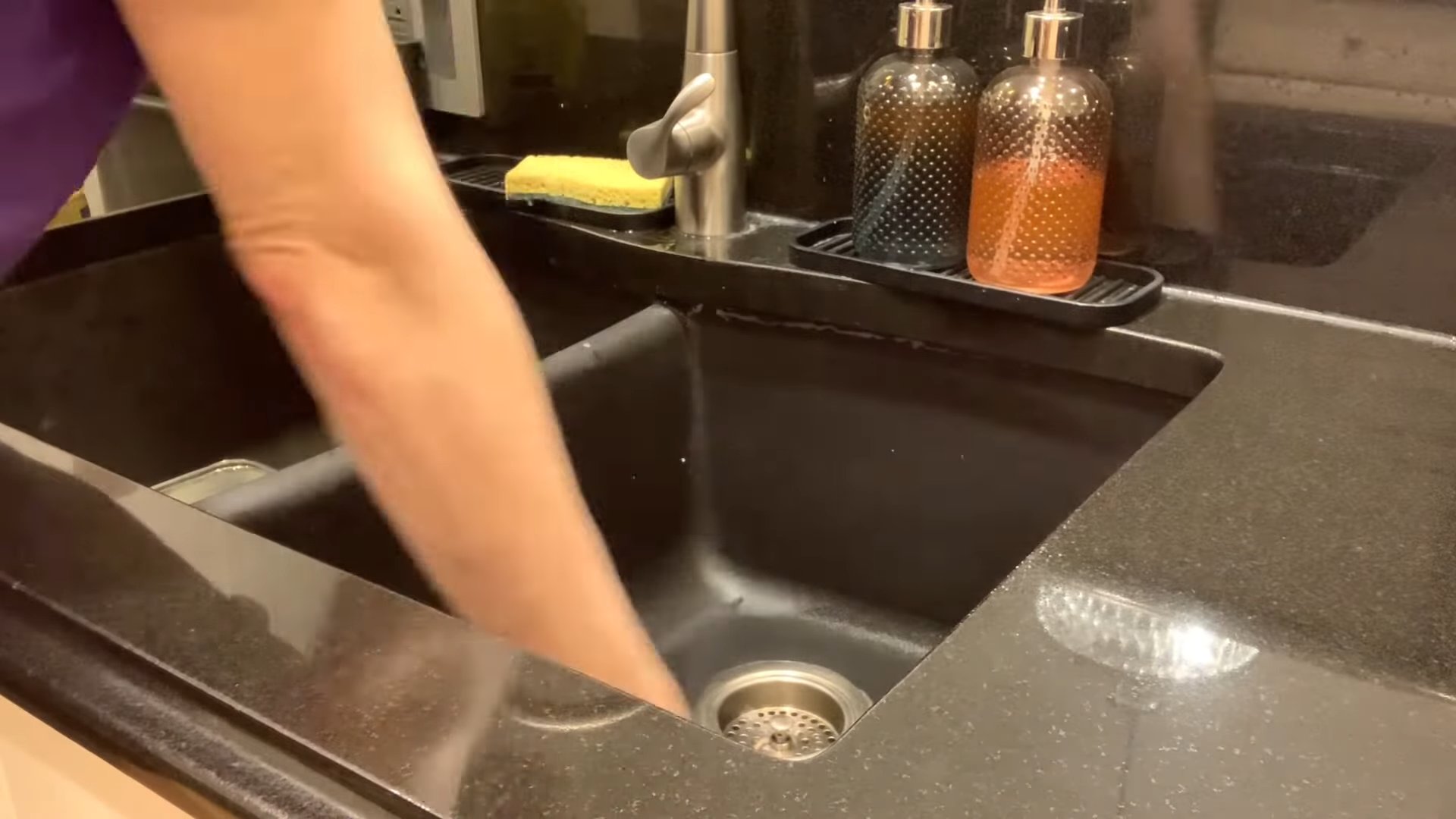
DIY All-Purpose Vinegar Cleaner: A Natural Cleaning Powerhouse!
Hey everyone! I’m so excited to share my go-to recipe for an all-purpose cleaner that’s not only incredibly effective but also super eco-friendly and budget-friendly. Ditch those harsh chemicals and embrace the power of vinegar! This cleaner is perfect for most surfaces in your home, leaving them sparkling clean and smelling fresh (with a little help from essential oils, of course!).
Why Vinegar?
Vinegar, especially white distilled vinegar, is a fantastic natural cleaner. It’s acidic, which helps to dissolve grime, grease, and hard water stains. Plus, it’s a natural disinfectant, killing many common household bacteria. It’s also non-toxic, making it safe for your family and pets.
What You’ll Need:
* White Distilled Vinegar
* Water (distilled or tap, but distilled is best for longer shelf life)
* Essential Oils (optional, but highly recommended for a pleasant scent) – Lavender, lemon, tea tree, eucalyptus, and orange are great choices.
* Spray Bottle (a dark-colored bottle is ideal to protect the essential oils from light)
* Measuring Cup or Spoons
* Funnel (optional, but helpful for pouring)
The Basic Recipe:
The core of this cleaner is a simple vinegar and water solution. Here’s the basic ratio:
* 1 part White Distilled Vinegar
* 1 part Water
This 50/50 solution is effective for general cleaning. For tougher jobs, you can increase the vinegar concentration.
Step-by-Step Instructions:
Let’s get started! This is so easy, you’ll wonder why you haven’t been doing it all along.
1. Prepare Your Spray Bottle: Make sure your spray bottle is clean and dry. I like to rinse mine out with hot water before using it.
2. Combine Vinegar and Water: Using your measuring cup, pour the vinegar and water into the spray bottle. Remember the 1:1 ratio. For example, if you’re using a 16-ounce spray bottle, you’d use 8 ounces of vinegar and 8 ounces of water.
3. Add Essential Oils (Optional): This is where you can customize your cleaner and make it smell amazing! I usually add about 15-20 drops of essential oil per 16-ounce bottle. Start with a smaller amount and add more if you want a stronger scent.
* Lemon Essential Oil: Great for cutting through grease and leaving a fresh, citrusy scent.
* Lavender Essential Oil: Adds a calming and relaxing aroma.
* Tea Tree Essential Oil: Has antibacterial and antifungal properties, making it a great addition for cleaning bathrooms.
* Eucalyptus Essential Oil: Provides a refreshing and invigorating scent.
* Orange Essential Oil: Another great citrus option for a bright and cheerful clean.
Important Note: Always use pure essential oils, not fragrance oils. Fragrance oils don’t have the same beneficial properties and can sometimes be irritating.
4. Shake Well: Secure the spray nozzle onto the bottle and shake well to combine all the ingredients.
5. Label Your Bottle: This is crucial! Label your spray bottle clearly as “Vinegar All-Purpose Cleaner.” This will prevent any accidental misuse.
Using Your Vinegar Cleaner:
Now that you’ve made your cleaner, let’s put it to work!
1. Spray the Surface: Spray the cleaner directly onto the surface you want to clean.
2. Let it Sit: Allow the cleaner to sit for a few seconds to a minute to loosen dirt and grime. For tougher stains, you can let it sit for a bit longer.
3. Wipe Clean: Use a clean cloth or sponge to wipe the surface clean. I prefer using microfiber cloths because they’re super absorbent and don’t leave streaks.
4. Dry (If Necessary): If the surface is still damp after wiping, you can dry it with a clean cloth.
Where to Use Your Vinegar Cleaner:
This all-purpose cleaner is incredibly versatile! Here are some of the places I use it in my home:
* Kitchen Counters: Perfect for wiping down countertops after cooking.
* Sinks: Cleans and disinfects sinks beautifully.
* Appliances: Use it to clean the exterior of your refrigerator, microwave, and other appliances.
* Bathroom Counters and Sinks: Great for removing soap scum and hard water stains.
* Showers and Tubs: Helps to prevent mildew and keep your shower sparkling.
* Floors (Hardwood, Tile, and Laminate): Dilute the cleaner with more water (about 1/4 cup of cleaner per gallon of water) to avoid damaging the finish. Always test in an inconspicuous area first.
* Windows and Mirrors: Creates a streak-free shine.
* Glass Surfaces: Cleans glass tables and other glass surfaces.
Areas to Avoid:
While vinegar is a fantastic cleaner, there are a few surfaces you should avoid using it on:
* Marble and Granite: The acidity of vinegar can etch and damage these natural stone surfaces.
* Waxed Furniture: Vinegar can strip the wax finish.
* Aluminum: Vinegar can cause aluminum to corrode.
* Electronics Screens: Avoid spraying directly onto electronic screens. Use a microfiber cloth dampened with a diluted vinegar solution instead.
* Unsealed Grout: Vinegar can damage unsealed grout.
Troubleshooting:
* Strong Vinegar Smell: Don’t worry, the vinegar smell will dissipate quickly! Adding essential oils helps to mask the scent.
* Streaking: If you’re experiencing streaking, try using a clean, dry microfiber cloth to buff the surface after wiping. You might also be using too much cleaner.
* Cleaner Not Effective: If the cleaner isn’t working as well as you’d like, try increasing the vinegar concentration. You can also add a small amount of baking soda to the surface before spraying with the vinegar cleaner. The fizzing action helps to loosen stubborn grime.
Customizing Your Cleaner:
This recipe is just a starting point! Feel free to experiment and customize it to suit your needs and preferences.
* Adding Baking Soda: For extra cleaning power, you can add a tablespoon or two of baking soda to the spray bottle. Be careful, as it will fizz when it comes into contact with the vinegar.
* Infusing Vinegar with Citrus Peels: For a more natural citrus scent, you can infuse your vinegar with citrus peels. Simply place citrus peels (lemon, orange, grapefruit) in a jar of vinegar and let it sit for a few weeks. Then, strain the vinegar and use it in your cleaner.
* Using Different Essential Oil Blends: Get creative with your essential oil blends! Try combining different oils to create unique and refreshing scents.
Storing Your Cleaner:
Store your vinegar all-purpose cleaner in a cool, dark place. A dark-colored spray bottle will help to protect the essential oils from light, which can degrade them over time. The cleaner should last for several months. If you notice any changes in color or smell, it’s best to discard it and make a fresh batch.
Safety Precautions:
* Keep out of reach of children and pets.
* Avoid contact with eyes. If contact occurs, rinse thoroughly with water.
* Do not mix with bleach or other harsh chemicals. This can create dangerous fumes.
* Always test the cleaner in an inconspicuous area before using it on a large surface.
My Favorite Recipe Variations:
* Lemon & Tea Tree: This is my go-to for cleaning bathrooms. The lemon cuts through soap scum, and the tea tree has antibacterial properties.
* Lavender & Eucalyptus: This blend is perfect for creating a relaxing and refreshing atmosphere while cleaning.
* Orange & Clove: This combination is great for the fall and winter months, creating a warm and inviting scent.
Final Thoughts:
Making your own all-purpose vinegar cleaner is a simple, affordable, and eco-friendly way to keep your home clean and healthy. I hope you enjoy this recipe as much as I do! Happy cleaning!
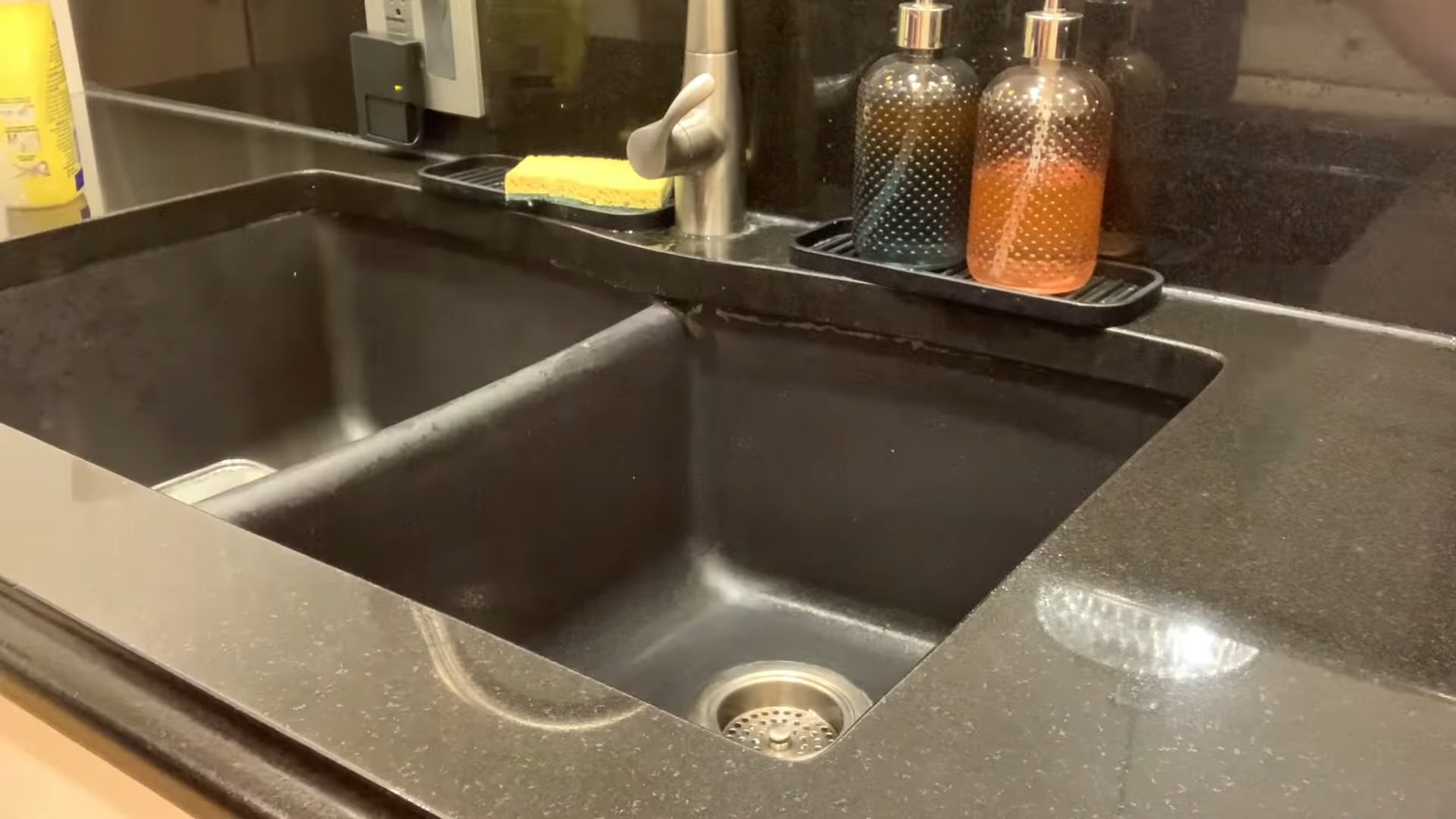
Conclusion
So, there you have it! Ditching those expensive, chemical-laden commercial cleaners and embracing this simple, effective, and eco-friendly vinegar all-purpose cleaner recipe is a game-changer for your home and your wallet. We’ve walked you through the easy steps, highlighted the incredible benefits, and even offered some fun variations to personalize your cleaning experience.
Why is this a must-try? Because it’s more than just a cleaning solution; it’s a conscious choice. You’re opting for a healthier home environment, reducing your exposure to harsh chemicals, and minimizing your environmental impact. Plus, let’s be honest, the satisfaction of creating something so useful with ingredients you likely already have on hand is incredibly rewarding.
But the benefits don’t stop there. This vinegar-based cleaner is incredibly versatile. Use it on countertops, sinks, showers, floors (except for natural stone, of course!), and even windows for a streak-free shine. It’s a true all-purpose solution that simplifies your cleaning routine and declutters your cleaning cabinet.
Looking for some variations? Experiment with different essential oil combinations to create your signature scent. Lavender and lemon offer a calming and refreshing aroma, while tea tree and eucalyptus provide powerful antibacterial properties. You can also infuse your vinegar with citrus peels for a boost of cleaning power and a delightful fragrance. Simply add the peels to a jar of vinegar and let it sit for a few weeks before straining and using.
For a stronger cleaning solution, especially for tackling stubborn grime, consider increasing the vinegar concentration slightly. However, always test on an inconspicuous area first to ensure it doesn’t damage the surface. And remember, while vinegar is a fantastic cleaner, it’s not suitable for all surfaces. Avoid using it on natural stone like marble or granite, as the acidity can etch the surface.
We truly believe that once you try this vinegar all-purpose cleaner recipe, you’ll never go back to store-bought alternatives. It’s effective, affordable, eco-friendly, and customizable – what’s not to love?
So, grab your vinegar, water, and essential oils, and get ready to transform your cleaning routine. We’re confident you’ll be amazed by the results.
Now, we want to hear from you! Have you tried this recipe? What essential oil combinations did you use? What surfaces did you find it worked best on? Share your experiences, tips, and variations in the comments below. Let’s build a community of eco-conscious cleaners and inspire others to make the switch to a healthier, more sustainable cleaning routine. Your feedback is invaluable and helps us all learn and grow together. Let us know if you have any questions, we are here to help!
Frequently Asked Questions (FAQ)
1. Can I use any type of vinegar for this all-purpose cleaner?
While white distilled vinegar is the most commonly recommended type for cleaning due to its acidity and lack of color, you can technically use other types of vinegar like apple cider vinegar. However, keep in mind that apple cider vinegar has a distinct smell and may leave a slight residue, especially on darker surfaces. White distilled vinegar is generally preferred for its neutral scent and effective cleaning power. It is also the most cost-effective option. Avoid using balsamic vinegar, as its color and sugar content will leave a sticky residue.
2. What essential oils are best to use in this cleaner?
The best essential oils for your vinegar all-purpose cleaner depend on your personal preferences and desired benefits. Some popular choices include:
* **Lemon:** Known for its uplifting scent and degreasing properties.
* **Lavender:** Provides a calming aroma and has antibacterial properties.
* **Tea Tree:** A powerful antiseptic and antifungal oil, great for disinfecting.
* **Eucalyptus:** Has a refreshing scent and is effective against germs.
* **Orange:** Offers a bright, citrusy fragrance and helps to cut through grease.
* **Peppermint:** Provides a refreshing and invigorating scent.
Experiment with different combinations to find your favorite blend. Start with a few drops of each oil and adjust to your liking. Remember to use pure essential oils for the best results.
3. Is vinegar safe to use on all surfaces?
No, vinegar is not safe to use on all surfaces. Avoid using it on:
* **Natural Stone (Marble, Granite, Limestone):** The acidity can etch and damage these surfaces.
* **Waxed Furniture:** Vinegar can strip the wax finish.
* **Unsealed Grout:** The acidity can erode the grout.
* **Electronics Screens:** The liquid can damage the internal components.
* **Cast Iron Cookware:** Vinegar can remove the seasoning.
Always test the cleaner on an inconspicuous area before applying it to a larger surface.
4. How long will this homemade cleaner last?
This vinegar all-purpose cleaner has a long shelf life due to the preservative properties of vinegar. When stored in a cool, dark place, it can last for several months, even up to a year. However, the scent of the essential oils may fade over time. If you notice any changes in color or odor, it’s best to discard the cleaner and make a fresh batch.
5. Can I use this cleaner on my hardwood floors?
While some people use diluted vinegar on hardwood floors, it’s generally not recommended. The acidity can damage the finish over time, leading to dullness and discoloration. If you choose to use it, dilute it heavily with water (1/4 cup vinegar per gallon of water) and test it on an inconspicuous area first. Always wring out your mop thoroughly to avoid excess moisture. For hardwood floors, it’s best to use a cleaner specifically designed for that purpose.
6. My cleaner smells too strongly of vinegar. How can I fix this?
The strong vinegar smell will dissipate as the cleaner dries. However, if you find the scent overwhelming, you can try the following:
* **Increase the amount of essential oils:** Add a few more drops of your favorite essential oils to mask the vinegar smell.
* **Infuse the vinegar with citrus peels:** As mentioned earlier, infusing vinegar with citrus peels before making the cleaner will add a pleasant citrus scent.
* **Use a higher quality vinegar:** Some cheaper vinegars have a stronger odor.
* **Ventilate the area:** Open windows and doors to allow fresh air to circulate while cleaning.
7. Can I use this cleaner to disinfect surfaces?
While vinegar does have some antibacterial properties, it’s not as effective as commercial disinfectants. For disinfecting surfaces, especially in areas prone to germs like bathrooms and kitchens, consider adding a few drops of tea tree oil or using a stronger disinfectant solution. However, for general cleaning and maintenance, this vinegar all-purpose cleaner is a great option.
8. Is this cleaner safe to use around pets and children?
This cleaner is generally safe to use around pets and children, as it doesn’t contain harsh chemicals. However, it’s still important to take precautions:
* **Keep the cleaner out of reach of children and pets.**
* **Avoid spraying the cleaner directly on pets or children.**
* **Ensure the area is well-ventilated while cleaning.**
* **If your pet or child ingests the cleaner, contact a veterinarian or medical professional immediately.**
Always supervise children when they are helping with cleaning tasks.
9. Can I use this cleaner in a spray bottle?
Yes, this cleaner is perfect for use in a spray bottle. Make sure to use a clean, empty spray bottle and label it clearly to avoid confusion. A dark-colored spray bottle can help protect the essential oils from light degradation, prolonging their scent and effectiveness.
10. What if I don’t have essential oils? Can I still make this cleaner?
Yes, you can still make this cleaner without essential oils. The vinegar and water mixture alone is an effective cleaning solution. The essential oils are primarily added for fragrance and additional antibacterial properties. If you don’t have essential oils, you can simply use the vinegar and water mixture. You can also try infusing the vinegar with citrus peels or herbs for a natural fragrance.

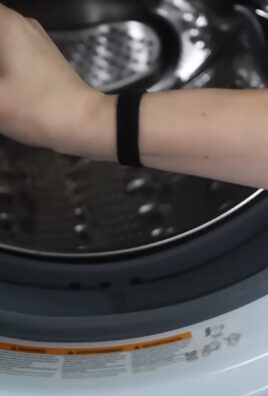
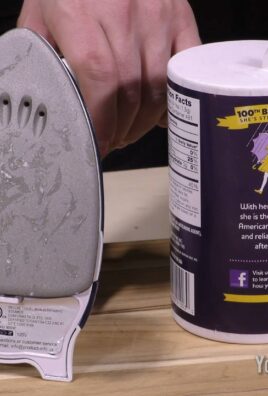
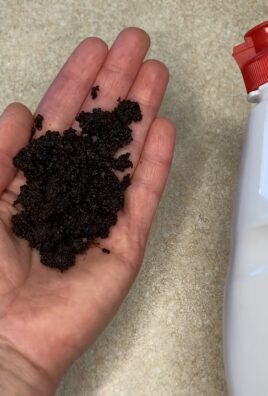
Leave a Comment